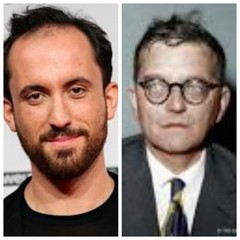|
Back
Sauntering into the Galaxy New York
Isaac Stern Auditorium, Carnegie Hall
10/18/2022 -
Dmitri Shostakovich: 24 Preludes and Fugues, Opus 87
Igor Levit (Pianist) 
I. Levit/D. Shostakovich
“But I like listening to any music, including bad music. It’s a professional disease, an addiction to notes. The brain finds sustenance in any combination of sounds. It works constantly, performing various composerly operations.”
“A fresh approach to a work of music (...) usually comes to those who have a fresh approach to aspects of life, to life in general.”
Dmitri Shostakovich
The New Yorker’s Alex Ross is rarely wrong, but when he wrote several years ago that Dmitri Shostakovich’s Preludes and Fugues belonged in a desk drawer rather than a concert hall, pianist Igor Levit knocked that comment into the sky. Mr. Levit’s performance last night was two‑and‑a‑half hours of epic proportions–and unending emotional discoveries.
Shostakovich was consciously basing his 24 works on Bach’s Well‑Tempered Clavier. Bach, though transcended his pedagogic lessons for the new‑fangled clavier. Shostakovich did use many Baroque form in this work. And individual pieces here can be analyzed and re‑analyzed again and again.
Hearing them in their totality, one forgets analysis and delves into their Promethean playability.
Igor Levit could not be the onlie begetter of the works. Preceding (and doubtless proceeding) artists will have essayed the same works. Yet Mr. Levit has both the personality, the verisimilitude and (of course) the artistry to create a universe of sounds. Like Shostakovich, Mr. Levit’s well‑documented humanism, his concentration and his utter seriousness echo that of the composer.
Yet here we had something totally different. Shostakovich could give codes in his symphonies and chamber music, as well as pure ideology in his State-commissioned works. The Preludes and Fugues have no secret meanings (that I could gather), its references are non-existent (ditto). Instead, each work was like a micro-universe.
It could be a like the IVth Prelude, starting with church‑like bells, then delving into the most agitated fugue. Or like the XVth section, a mordant waltz resembling one of the Shostakovich scherzi. Or the IIIrd Prelude, not a paean or homage to Mussorgsky as much as an aura, a ghostly subliminal memory.
Or, in the most mysterious XVIIIth Fugue, one was quietly led into a labyrinth. All 12 tones were turned and twisted round and round, almost like a Schoenberg serial work. But here, rather than a mathematical conundrum, one was led through tangles, of notes, sometimes coming up to air with the original theme, then plunging into the jungle.
These variegated words come from written notes written during the concert. But they are plainly insufficient to describe the playing. Igor Levit never came close to showing how complex were the fugues, from two to five voices. Rather, from the first C Major Prelude, he let the notes play themselves. Shostakovich never set out exact dynamics, sticking to simple “Allegro” or “Andante”. So Mr. Levit never exaggerated, never let the fiery “Allegro” of the IIIrd Prelude become explosively Lisztian.
Not that he was a “quiet” artisan. When not using his left hand, he literally conducted himself. He could leap up from the chair or pound down on loud chords. He gave Shostakovich’s dark bass notes a palette different colors. Mr. Levit never exaggerated the return of fugal themes, but let the notes peer out over the tangles of chords, then allowed their return, allowing their presence to be implicitly heard.
One felt a scintilla of guilt, during the concert, realizing how awesome was this event. For Mr. Levit never needed such extra‑musical feelings. Instead, like Mr. Levit himself, one felt a devotion to the music itself. How would Shostakovich change a children’s tune into a turbulent prelude? How did a simple fugal line become a mass of knotty measures, seemingly without meters yet always controlled?
These were felt after the performance. During this monumental evening, one felt less an unashamed appreciation for Mr. Levit, and more a psychic awe at this musical galaxy of moods.
Harry Rolnick
|